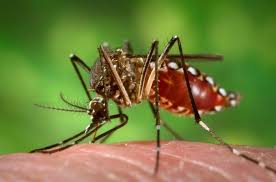Both in Australian and around the world, mosquitoes pose a serious health risk. Not only are mosquito bites a nuisance, they can also transmit a number of diseases, which can potentially be fatal if not treated properly.
Different types of mosquito diseases are more prevalent than others in different parts of the world. This also applies to different states and territories in Australia. For instance, Barmah Forest fever is primarily found in tropical and sub-tropical parts of Queensland, South Australia, and Western Australia.
Education is the key to reducing the risk of mosquito-borne diseases. This includes taking preventive measures to avoid mosquito bites, being able to identify the symptoms early, and getting the right treatment. This way, we can improve patient outcomes, and prevent mosquito-related illnesses from occurring in the first place.
Here is a list of the most common mosquito diseases found in Australia and around the world.
Australia
Ross River Virus
The Ross River virus is a virus transmitted to humans by the bite of an infected mosquito. The virus is most often transmitted by mosquitoes found in salt marshes and salty pools, for example, the Culex annulirostris or Aedes vigilax. However, these mosquitoes can also breed near homes with permanent sources of stagnant water, including bird baths, pot plants, and rubbish bins.
Symptoms
Common symptoms of the Ross River Virus include:
- Inflammation pain in multiple joints and muscles
- Swelling
- Fever
- Red rash
These symptoms can start to appear anywhere from 3 to 11 days after being bitten by an infected mosquito. Depending on the severity, the symptoms can last for two to six weeks or longer.
Treatment
Currently, there is no specific drug or cure for Ross River virus. When you visit a doctor, they will prescribe some medication to relieve the joint and muscle pain, along with other medications to relieve the fever-like symptoms.
Plenty of rest and gentle exercise can also help you recover from this mosquito disease.
Barmah Forest Virus
The Barmah Forest virus is a virus transmitted to humans through the bite of mosquitoes infected by marsupials such as possums, kangaroos, and wallabies. Mosquitoes can also get the disease from infected humans they have fed on.
Each there are over 400 cases of the Barmah Forest virus in Queensland. Currently, Australia is the only country where the virus has been reported. The virus is typically not fatal and the majority of infected people make a full recovery.
Symptoms
- Inflammation and joint paint – typically lasts for a short period of time than Ross River.
- Headache
- Fever
- Tiredness
- Muscle soreness
- Skin rashes
Treatment
There is no specific drug treatment for the Barmah Forest virus. You may be given medication to help relieve the joint and muscle pain. Similar to the Ross River virus, your doctor may recommend plenty of rest and gentle exercise, as this will help keep the joints moving and help you avoid being overtired.
Worldwide
Dengue Fever
Dengue Fever is a type of virus transmitted to humans through the bite of an infected mosquito. The symptoms of dengue fever are similar to those of the flu.
While Australia does not have any mosquitoes who can carry this disease, you may be at risk if you come into contact with an infected person who has recently travelled overseas. In particular, if they have travelled to tropical or sub-tropical parts of Africa, Asia, or South America.
Symptoms
Mild symptoms of dengue fever include:
- Fever
- Nausea and vomiting
- Swollen glands
- Headache
- Rash
- Fatigue
- Red rashes
- Bleeding nose or gums
More severe symptoms of dengue fever include:
- Difficulty breathing
- Stomach pain or cramps
- Cold, clammy skin
- Confusion
- Constant vomiting
- Blood found in faeces
If you, or someone you know, is experiencing any of these symptoms, seek urgent medical assistance.
Treatment
As you guessed it, there are no specific drug treatments for Dengue Fever.
When you visit a doctor, they may recommend you drink plenty of fluids, have lots of rest, and potentially take some painkillers. Of course, treatment options will vary depending on the symptoms and their severity.
While you recover from Dengue Fever, it is advised that you do not take aspirin or nonsteroidal anti-inflammatory drugs (NSAIDs). These drugs can make the bleeding worse.
Malaria
Malaria is a disease transmitted to humans through the bite of an infected mosquito. The disease mainly causes an infection of a person’s red blood cells. There are five different types of malaria parasites and they each vary in severity. The falciparum malaria is the most dangerous because if the symptoms are untreated it can lead to severe illness and even death.
Malaria is typically carried by mosquitoes found in parts of the South-West Pacific (Papua New Guinea, Vanuatu, and Solomon Islands), Asia (Vietnam, India, Thailand, Sabah, and Myanmar), and Africa (most East African countries pose a high risk).
Symptoms
- Excessive sweating
- Fever
- Aching joints
- Headache
- Nausea and stomach ache
- Diarrhoea
- Vomiting
- Yellow skin and/or eyes
Treatment
There are several drugs available to prevent and treat cases of malaria. You should always visit your local doctor prior to travelling overseas to ensure you get the right vaccinations to protect yourself from malaria.
Want to avoid the symptoms of mosquito-borne diseases this year? Prevention is always better than a cure. Contact All Bugs today, and get a custom treatment plan to keep your premise a mosquito-free zone.



Leave a Reply